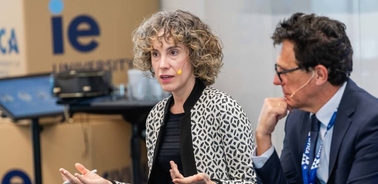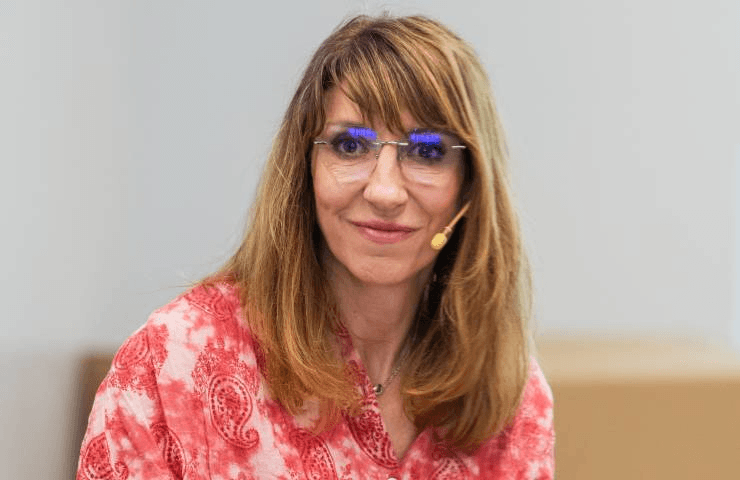- Home
- Civica
- Civica News
- Driving The Sdgs Forward: Ie Business School Promotes Purpose-driven, Action-oriented Education At The Civica Global Forum
Driving the SDGs forward: IE Business School promotes purpose-driven, action-oriented education at the CIVICA Global Forum

IE Business School defends a holistic, partnership-driven approach to sustainability in higher education at CIVICA’s flagship event
In a world shaped by climate urgency, inequality, and rapid technological evolution, sustainability can no longer remain a theoretical concept within higher education and must become a driver of real-world transformation. At the CIVICA Global Forum, hosted by IE University on May 6 and 7 at its vertical campus in Madrid, IE Business School underscored the need to place sustainability at the heart of academic practice through meaningful partnerships, experiential learning, and incentives that turn awareness into action.
The CIVICA Global Forum brought together over 450 participants from academia, business, government, and civil society to explore how social sciences can offer solutions to today’s complex global challenges. By hosting the flagship event of CIVICA – the European University of Social Sciences – IE University, together with the other nine European universities in the alliance, reaffirmed its role as a key player in shaping the future of European higher education, consolidating its commitment to international collaboration, critical thinking, and the vital role of the Social Sciences in building Europe’s future.
Held under the theme “Leveraging Social Sciences in Higher Education: Navigating Global Challenges and Complexities,” the Forum included a key panel discussion led by IE Business School on how universities can move from awareness to measurable impact. In the session “Bridging the Gap: The Role of Academia and Global Networks in Advancing SDGs”, Concepción Galdón, Vice Dean of Business with Purpose and Director of the Center for Social Innovation of IE Business School, shared powerful insights on how higher education institutions can lead the way in advancing the SDGs, through purpose-driven learning, global collaboration and innovative action.
Moderated by Nicole Rosow, Director of Sustainability at IE University, the panel also featured José Luis Blasco Vázquez, Global Sustainability Director at Acciona, and Marta García Haro, Senior Manager of Network Programs at SDSN. Together, the speakers reflected on the need for interdisciplinary approaches and cross-sector alliances to address the scale and complexity of the Sustainable Development Goals (SDGs).
Concepción Galdón emphasized the urgency of turning knowledge into action. She argued that higher education institutions must create safe spaces for dialogue, where students are encouraged to take ownership of sustainability challenges. “Discussion fosters awareness, but action requires alignment, incentives matter,” she noted. She stressed that sustainability education must include practical, hands-on experiences, and called for stronger partnerships between universities and external stakeholders. These collaborations, she explained, allow students to address real-life sustainability problems and co-create solutions with measurable impact.
José Luis Blasco Vázquez added that one of the main challenges in advancing sustainability is that different actors respond to different incentives, which are not always aligned. Marta García Haro suggested improving communication—for example, through mentorship programs between policymakers and students—to help overcome this collective challenge.
